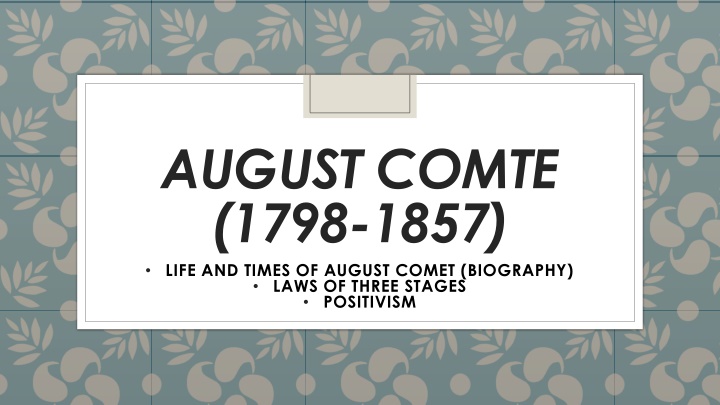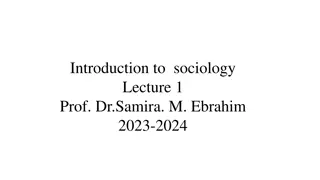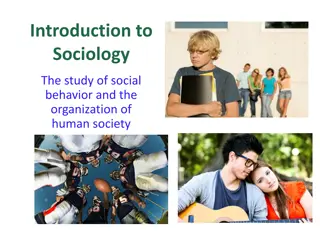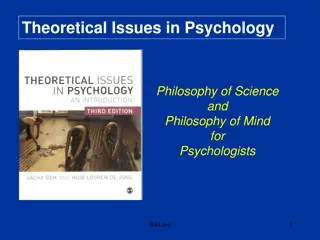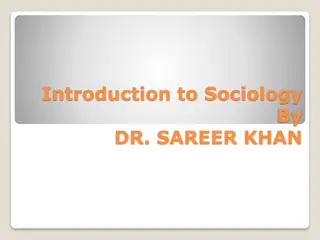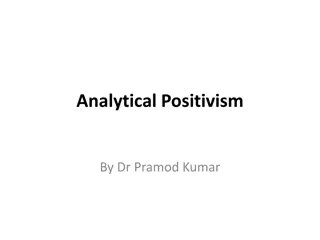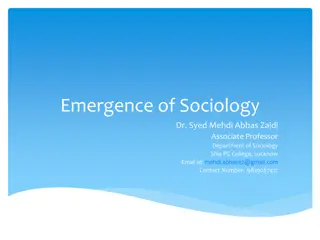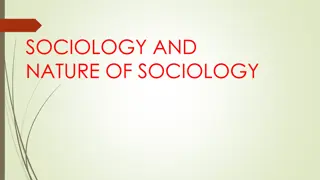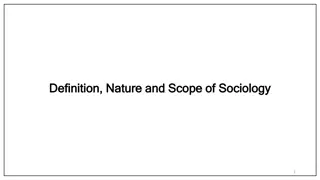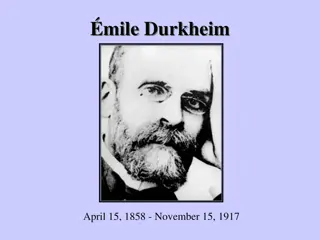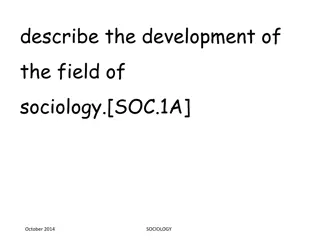Life and Contributions of Auguste Comte: A Pioneer of Sociology and Positivism
Auguste Comte, born in 1798, is renowned as the father of sociology who coined the term. He made significant contributions to social theory, particularly with his "Laws of Three Stages" and the positivist philosophy. Despite personal struggles, he published influential works and left a lasting impact on the development of social sciences. Comte passed away in 1857, leaving behind a rich intellectual legacy.
Download Presentation

Please find below an Image/Link to download the presentation.
The content on the website is provided AS IS for your information and personal use only. It may not be sold, licensed, or shared on other websites without obtaining consent from the author.If you encounter any issues during the download, it is possible that the publisher has removed the file from their server.
You are allowed to download the files provided on this website for personal or commercial use, subject to the condition that they are used lawfully. All files are the property of their respective owners.
The content on the website is provided AS IS for your information and personal use only. It may not be sold, licensed, or shared on other websites without obtaining consent from the author.
E N D
Presentation Transcript
AUGUST COMTE (1798-1857) LIFE AND TIMES OF AUGUST COMET (BIOGRAPHY) LAWS OF THREE STAGES POSITIVISM
* LIFE AND TIMES OF AUGUST COMTE: August Comte was the first social thinker who gave the name 'sociology' to a science of human behaviour. Comte was born in Montpellier, Herault on ' 19 January 1798 .
After attending the Lycee Joffre and the university of Montpellier, Comte was admitted to Ecole Politechnique in Paris . The Ecole closed in 1916 for reorganization, however, and Comte continued his studies at the medical School at Montpellier.
After 1822 he became a student and secretary to Henride Saint- Simon, who brought Comte into contact with intellectual society. During that time Comte Published his first eassay in the various publications. Headed by Saint- Simon, L' Industries , Le politique , and L'organisateur ( Charles Dunoyer and Charles Comte's Conseur European), although he would not published under his own name until 1819 s. In 1824, Comte left Saint.
August Comte married Comte married Caroline Masson' in 1825. In 1826 he was taken to mental hospital, but left without being cured. He would later attempt Suicide in 1827 by jumping off the pont des Art . In 1842, he published the six volume of his cours.
* Books Published by August Comte He published four volumer of system de politique positive (1851-1854). His final work, the first volume of La Synthese subjective ( the subjective synthesis ), was published in 1856. Comte died in Paris on 5 September 1857 from stomach cancer. His apartment from 1841-1857 is now conserved as the Maison d August Comte and is located at 10 rue Monsieur-le-Prince, in Paris 6th arrondissement.
*LAWS OF THREE STAGES OR THEORY OF HUMAN PROGRESS STAGES TIME PERIOD RULED DOMINATED Priests and military PREDOMINATED SOCIAL UNIT The Family THEOLOGI CAL METAPHYSI CAL Early Humankind Middle ages to beginning of Renaissance Industrialization Industry Churches and Lawyers The states SCIENTIFIC The entire human race Leaders, science moral guidelines
* THEOLOGICAL STAGE HAVE THREE TYPES 1. FETISHISM: Belief in some living spirit Spirit is the non Living objects. 2. POLYTHEISM: Belief in several God s as well as Natural and Human forces. 3. MONOTHEISM: Belief one God who is Supreme .
* POSITIVISM A philosophical ideology and movement , positivism first assumed its distinctive features in the work of Comte, who also named and systematized the science of sociology. It then developed through several stages known by various names, such as empiriocriticism, logical positivism, and logical empiricism, finally merging, in the mid-20th century, into the already existing tradition known as analytic philosophy.
The basic affirmations of positivism are . (1) that all knowledge regarding matters of fact is based on the positive data of experience and , (2) that beyond the realm of fact is that of pure logic and pure mathematics. Comte s Positivism was posited on the assertion a so called law of the Three chases(or stages)of intellectual development. There is a parallel,as Comte saw it,between the evolution of thought patterns in the entire history of humankind, on the one hand , and in the history of individuals development.
In the first, or so called Theological stage natural phenomena are explained as the results of supernatural or divine powers. It matters not whether the religion is polytheistic or monotheistic;. In either case miraculous powers or will are believed to produced the observed event. The second phase, called metaphysical, is in some cases marely a depersonalized theology: the observable process of nature are assumed to arise from impersonal power occurred qualities vital forces or entelechies . In other instances, the realm of observable facts is considered as an imperfect copy or imitation of external ideas, aa in Plato s metaphysics of pure forms .
